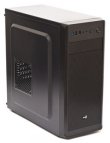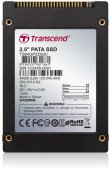|
|
|
| Enw gyrrwr | AnyDATA CDMA USB Serial 1 (DIAG) Device (PID 6002) |
| Enw ffeil | devid-driver-203124.exe |
| Gwneuthurwr | AnyDATA Corporation |
| Dyfais math | PORTS |
| Maint | 1.82 Mb |
| Gyrrwr fersiwn | 2.0.3.7 |
| Dyddiad gyrrwr | 2006-12-21 |
| System weithredu | Windows XP x64, Windows 2003 x64, Windows Vista x64, Windows 7 x64, Windows 8 x64, Windows 8.1 x64, Windows 10 x64 |
| Dyddiad llwytho i fyny | 2015-12-01 |
| Or click to install driver manually | |
|
|
|
|
|
|
 The name of the series of cases Aerocool SI is an abbreviation for System Intergration. In other words, these chassis are designed for OEM-assemblers that produce ready-made computer systems in bulk batches on request.
The name of the series of cases Aerocool SI is an abbreviation for System Intergration. In other words, these chassis are designed for OEM-assemblers that produce ready-made computer systems in bulk batches on request. Characteristics
Case type: Midi-Tower
Dimensions, mm: 430 (H)x198 (W)x425 (D)
Material: ABS plastic, steel
Weight, kg: 3,8
Color: black
Form factor: ATX
Devices 5.25": 1
3.5 «external devices: –
3.5 „/2.5“ internal devices: 2/3
Supported number of expansion slots: 7
Front fans: 3 x 120 mm (optional)
Rear fans: 1 x 120 mm (installed)
Side fans: 1 x 120 mm (optional)
Internal fans: 1 x 120 mm (optional)
Interface sockets: 2 x USB 2.0, 1 x USB 3.0, microphone in and headphone out
Packing and Delivery Kit
The packaging of the case is simple and informative. Protection from transportation damage is elementary – dampers made of foam and plastic bag.
The set of parts is assembled in a small bag. …
 Transcend representatives has recently announced the launch of their new product 2.5-inch PSD520 SSD-drive. According to the company’s concept, PSD520 are destined to secure high performance showings as well as prolonged reliability. Such specifications were achieved due to the implementation of flash microchips with single-layer cell memory location (SLC). Those microchips are able to sustain up to a dozen times more rewriting cycles as compared with multi-layer cell microchips.
Transcend representatives has recently announced the launch of their new product 2.5-inch PSD520 SSD-drive. According to the company’s concept, PSD520 are destined to secure high performance showings as well as prolonged reliability. Such specifications were achieved due to the implementation of flash microchips with single-layer cell memory location (SLC). Those microchips are able to sustain up to a dozen times more rewriting cycles as compared with multi-layer cell microchips. Several resources have published new details about Gigabyte video cards, which are about to come out.
Several resources have published new details about Gigabyte video cards, which are about to come out.